
Machine Learning Books You Need To Read In 2022
I have a list of Machine Learning books you need to read in 2022; beginner, intermediate, expert, and for everybody.

Susan Q Yin via Unsplash
More and more businesses are adopting machine learning, from predictive analysis to improving the overall workflow of the organization. Machine Learning has now become a critical element of business functionality in the past few years.
Businesses are curious about how implementing technology can benefit them, whilst Machine Learning professionals are eager to learn how far Machine Learning can take us.
In order for this to be successful, the operations behind it need to become proficient in understanding the concept of Machine Learning, being able to analyse the data, tweaking algorithms, solving problems, and more.
That seems like a lot of work, that’s umbrellaed under one topic. If you are interested in learning about Machine Learning or want to refine your current skills; I have a list of Machine Learning books you need to read in 2022; beginner, intermediate, expert, and for everybody.
1. Machine Learning for Absolute Beginners
Author: Oliver Theobald
Difficulty Level: Beginner
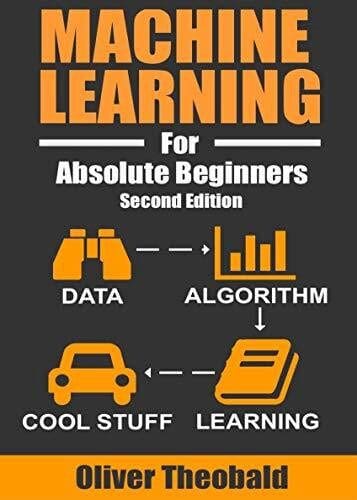
As it says in the title, if you’re an absolute beginner in Data Science, and Machine Learning, this book is for you. It is especially good for those who have little to no coding experience, guiding you through the concepts of Machine Learning swiftly.
You will be introduced to core algorithms, with clear explanations and visual examples. If you have no mathematical knowledge or experience, that’s also fine as the second half of the book dives into statistical concepts and specific algorithms applied in machine learning.
2. Hands-On Machine Learning with Scikit-Learn, Keras, and TensorFlow
Author: Aurelien Geron
Difficulty Level: Beginner

This book requires you to have previous knowledge of Python, diving deep into popular libraries such as Scikit-Learn, Keras, and TensorFlow 2. This book uses concrete examples, minimal theory, and production-ready Python frameworks to help you get the most out of learning and applying Machine Learning.
Other aspects this book dives into includes Support Vector Machines, Decision Trees, Random Forests, and Ensemble Methods. You will be able to apply practical code examples without having prior excessive machine learning theory or algorithm knowledge.
3. Interpretable Machine Learning
Author: Christoph Molnar
Difficulty Level: Beginner
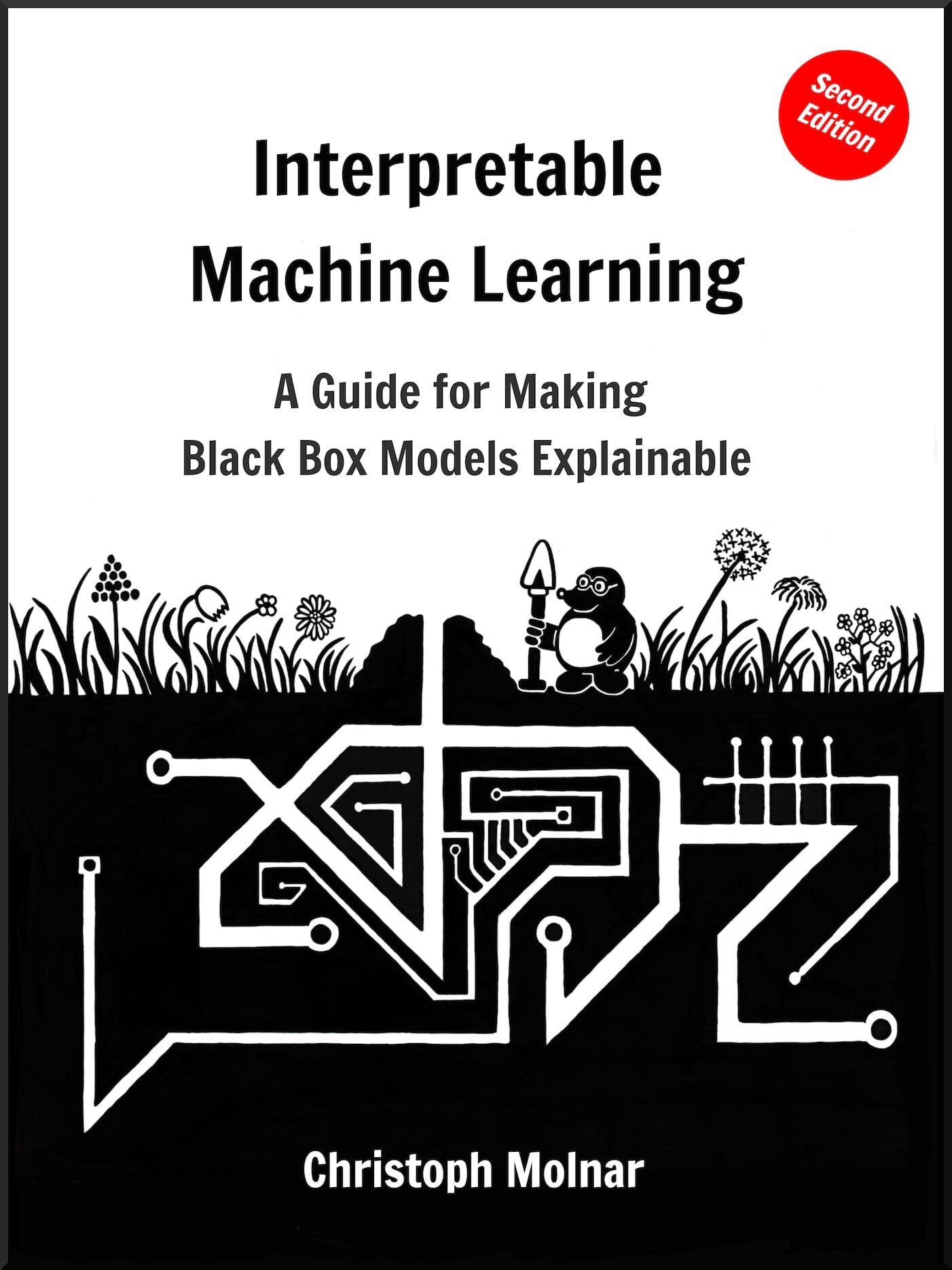
This book by Christoph Molnar started as a side project, due to the lack of resources available in relation to the success of machine learning and the importance of interpretability.
Model interpretability can be a difficult task for some Machine Learning models. Some of them can be very complex and produce unreadable outputs, making it difficult in the decision-making process.
This book goes into the importance of model interpretability, what humans consider a good explanation, diving into models that are interpretable such as regression and decision trees, aswell as a heavy focus on model-agnostic interpretability methods. Model-agnostic means that these methods can be applied to any machine learning model.
4. Machine Learning Design Patterns: Solutions to Common Challenges in Data Preparation, Model Building, and MLOps
Authors: Valliappa Lakshmanan, Sara Robinson, and Michael Munn
Difficulty Level: Intermediate
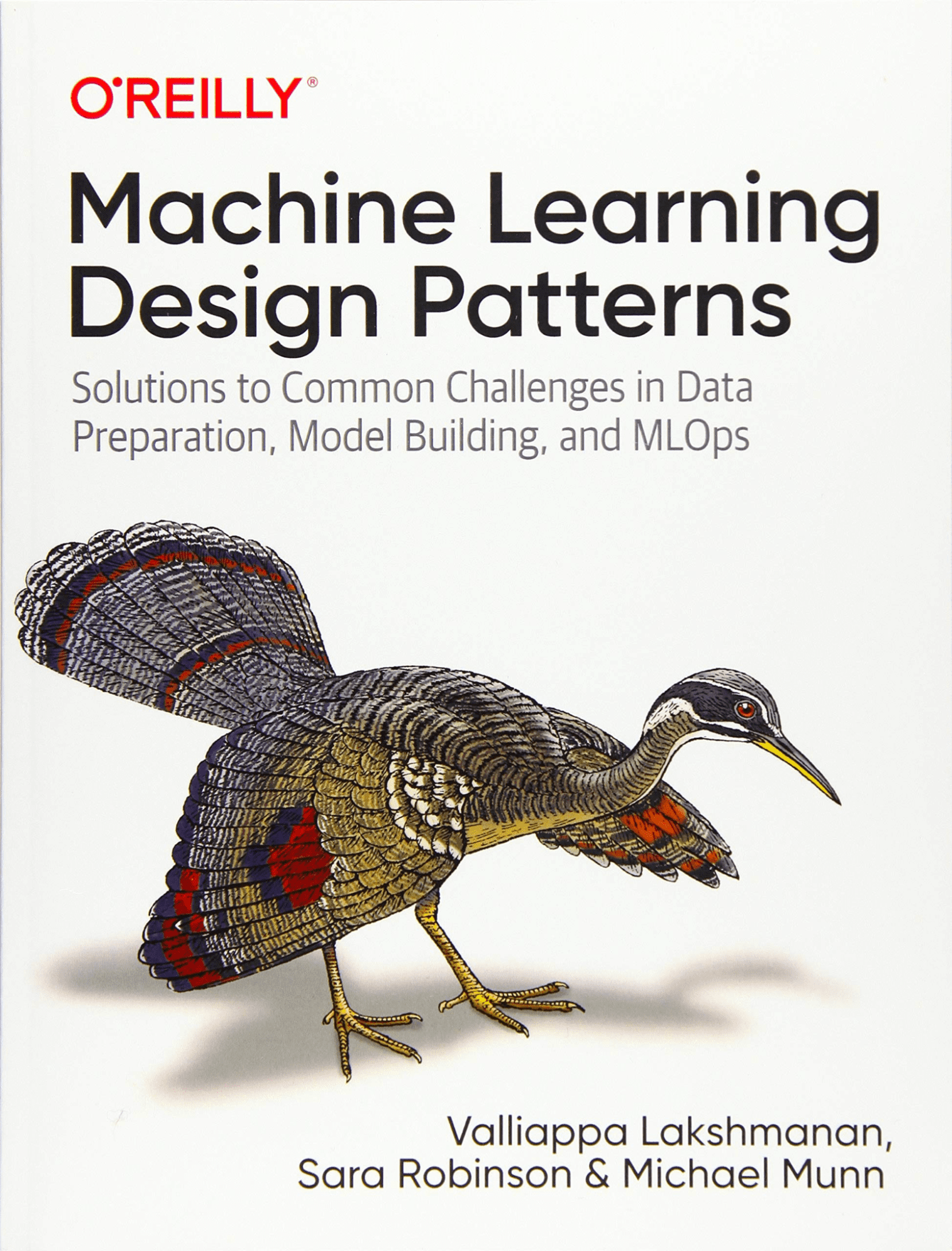
Being able to understand how to tackle problems and common challenges in data can be difficult. This book was written by three Google engineers, which further goes into the best practices and solutions used to solve recurring problems in machine learning.
The book includes 30 patterns for data and problem representation, which includes a description of the problem, a variety of potential solutions to tackle the problem, and recommendations for choosing the best technique for your situation.
I'd highly recommend this book to any ML practitioner but especially those whose focus is on devoting production-ready Ml systems. - Amazon Review
5. Engineering MLOps
Author: Emmanuel Raj
Difficulty Level: Intermediate
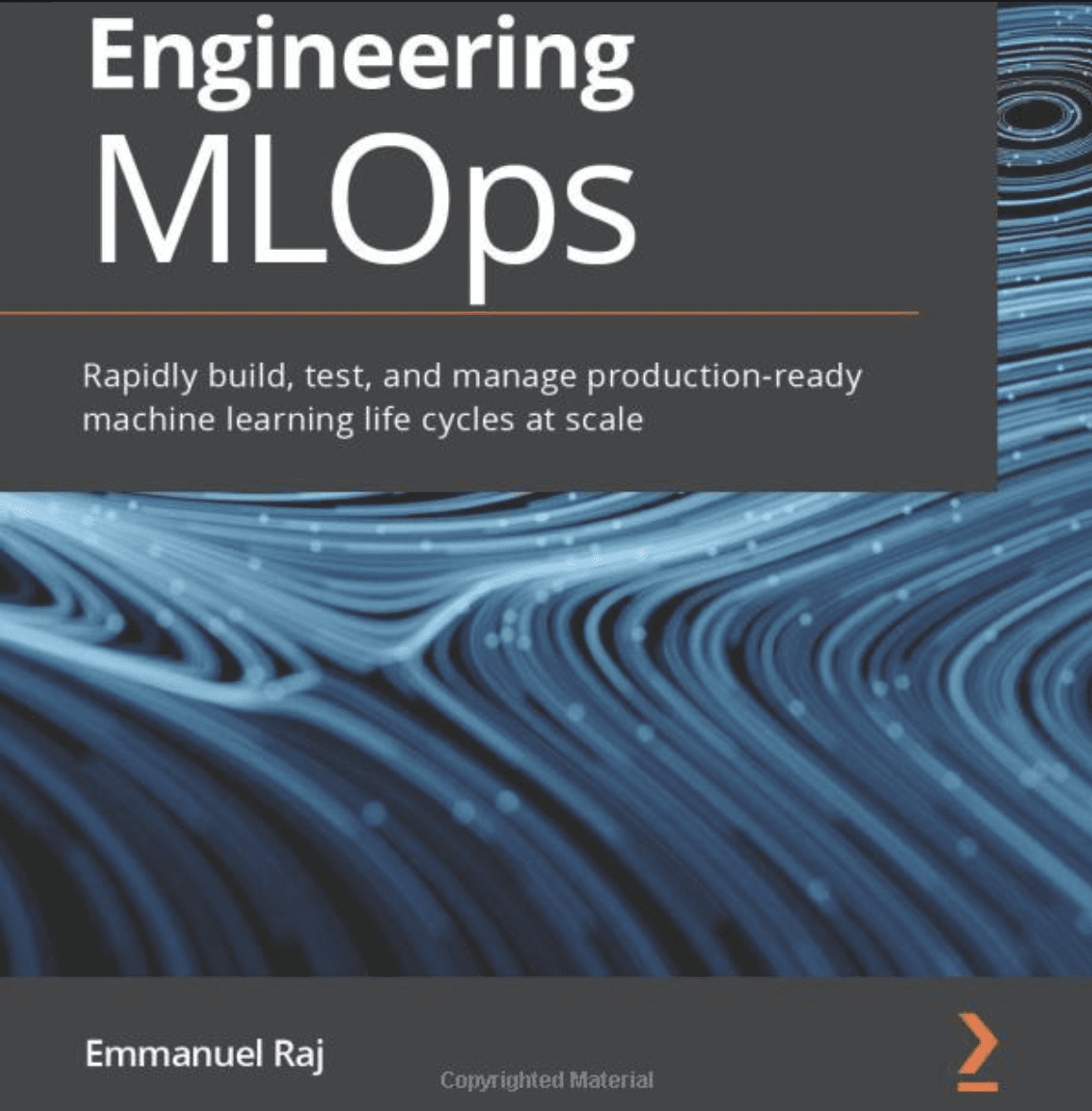
This book gives you a great overview of the MLOps lifecycle. It starts with familiarising yourself with the MLOps workflow, exploring options for packaging ML models to deploying the model. Allowing you to understand more about facilitating machine learning inference, model interoperability, and end-to-end model traceability.
You’ll learn how to build ML pipelines, continuous integration, and continuous delivery (CI/CD) pipelines. As well as the monitoring of these pipelines to govern ML solutions for businesses and industries.
By the end of this book, you will know how to apply your learned knowledge to build real-world projects and a 360-degree view of MLOps.
6. Python Machine Learning
Author: Sebastian Raschka, and Vahid Mirjalili
Difficulty Level: Expert

This book assumes that you already have a proficient understanding and application of Python and Machine Learning. It will go straight into the practical implementations of the concepts, from NumPy, Scikit-learn, TensorFlow2, and more.
Diving straight into the practical examples helps you to prepare and understand how to tackle real-world challenges in machine learning, which you will come across as you’re in the industry.
You will master different frameworks, models, and techniques that enable machines to 'learn' from data. You will apply your machine learning knowledge to tasks such as image classification, sentiment analysis, and more. As well as discovering best practices for evaluating and tuning models.
Topics vary from Dimensionality Reduction, Ensemble Learning, Clustering Analysis, Neural Networks, and more.
7. Ai Superpowers: China, Silicon Valley, and the New World Order
Author: Kai-Fu Lee
Difficulty Level: Everybody
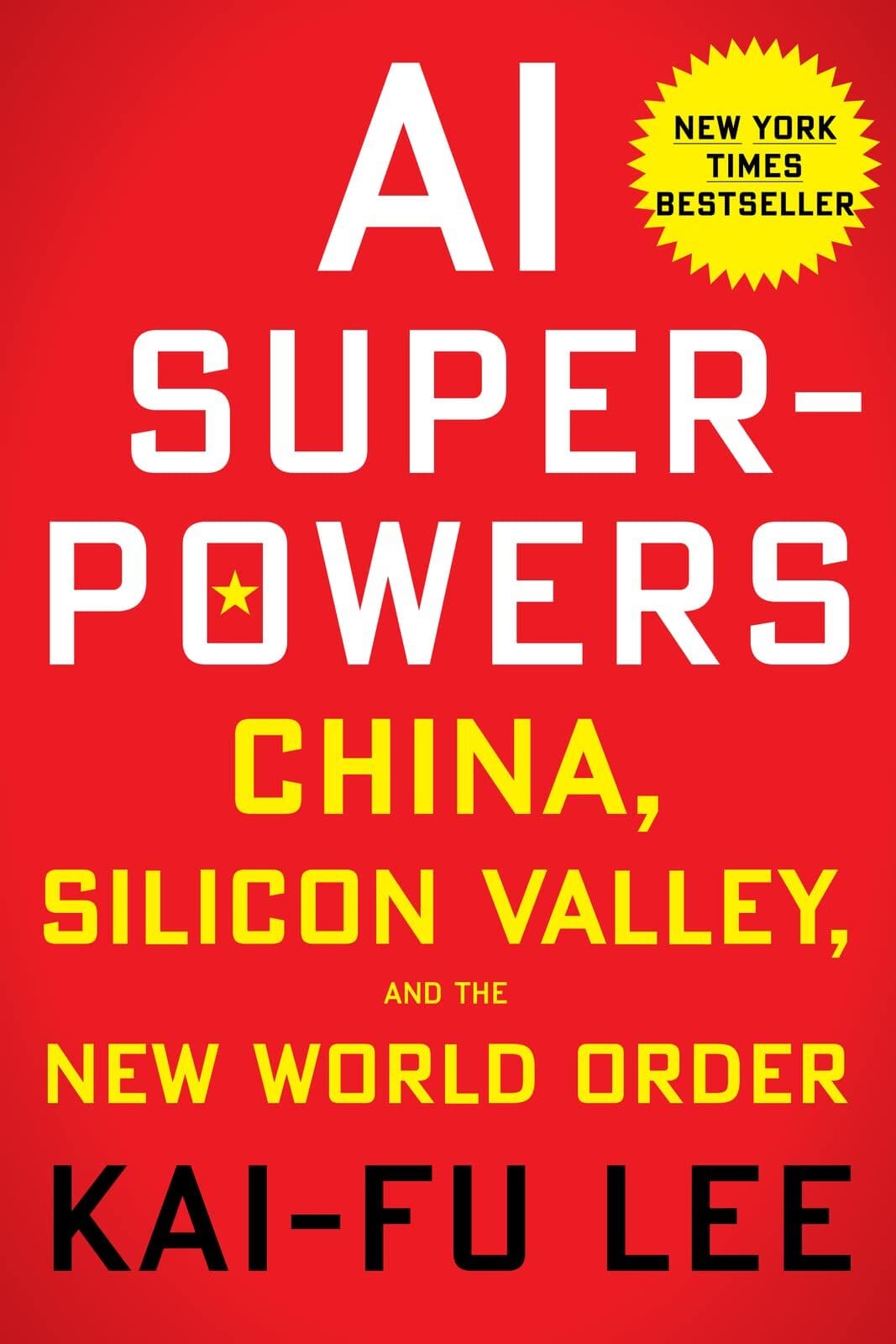
Although this book has little to no theoretical knowledge of Machine Learning, I believe it is a good book that everybody who is in the world of Data Science or is interested in the field should read.
Instead of constantly focusing on how to learn more about machine learning, MLOps, etc; it is good to understand where this is all taking us. What the future holds, and how AI is set to change the world.
Lee, who speaks on his experiences from both living in China and Silicon Valley, explains how AI will notably affect the workforce and proposes some practical solutions to the changes that will affect us all.
Nisha Arya is a Data Scientist and Freelance Technical Writer. She is particularly interested in providing Data Science career advice or tutorials and theory based knowledge around Data Science. She also wishes to explore the different ways Artificial Intelligence is/can benefit the longevity of human life. A keen learner, seeking to broaden her tech knowledge and writing skills, whilst helping guide others.
